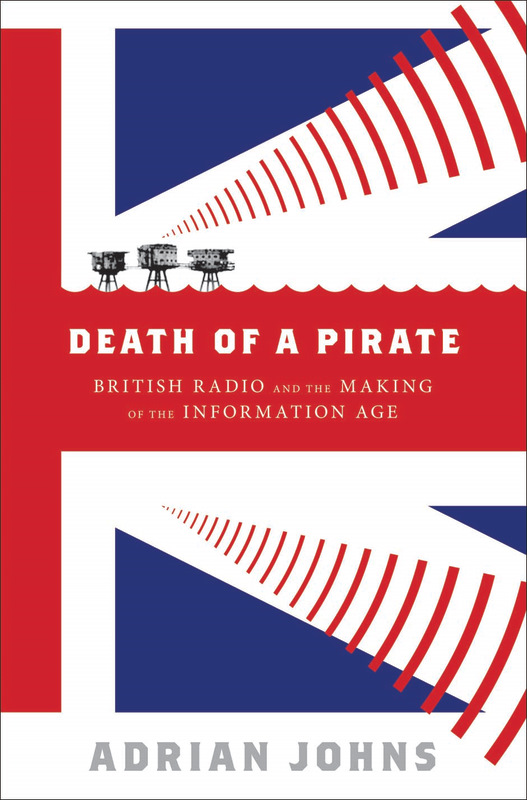DEATH OF A PIRATE: BRITISH RADIO AND THE MAKING OF THE INFORMATION AGE
ADRIAN JOHNS
When the pirate operator Oliver Smedley shoots and kills his rival Reg Calvert in Smedley's country cottage on 21 June 1966, it is a turning point in the careening career of the outlaw radio
stations dotting the coastal waters of Britain. Situated on ships and offshore forts like Shivering Sands, these stations blasted away at the high-minded BBC's broadcast monopoly with the new beats of the Stones
and the Who and DJs like Screaming Lord Sutch. For free-market idealogues like Smedley, the pirate stations were entrepreneurial efforts to undermine the growing British welfare state as embodied by the BBC.
In Death of a Pirate, the worlds of high table and underground collide in a riveting story littered with memorable characters such as the Bondian Kitty Black (an intellectual femme fatale who became
co-conspirator), and the murderous Kray twins, as well as some of the famous stations made even greater by nostalgia: Radio Caroline, Radio Atlanta, Radio Sutch.
In one sense, Death of a Pirate is about the importance of a moment. It tells a story of how ideology, pop music and demimonde entrepreneurship led to tragedy, and through that tragedy to the transformation
of a medium. Johns dedicates much of the book to exploring the deeper historical currents that gave rise to that tragic shooting in 1966, causes which stretch back as far as the invention of broadcasting in
the 1920s. He discusses the processes in history that made pirate radio a possibility, and made it a challenge to the established order of public service in the name of free speech.
Today, our highly networked society comes face to face with its own difficulties and challenges from pirates targeting the music and film industries, and others. They too proclaim the virtues of liberty, freedom of
speech and engaged citizenship. None of us can really escape engagement with those issues. Johns, by reflecting on the events leading up to and during 1966, sets our own situation in an historical context and aims
to help us come to terms with our current predicament.
With sixteen pages of black-and-white photographs, Death of a Pirate is a gripping journey back to the hey-day of the sixties - pacy and evocative, with a razor-sharp intellectual edge.
ABOUT THE AUTHOR:
Adrian Johns is a professor of history at the University of Chicago. Educated at Cambridge University, Johns is a specialist on intellectual property and piracy.
ISBN: 9780393068603
|

